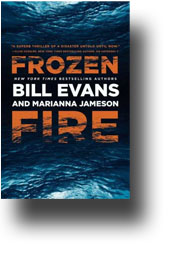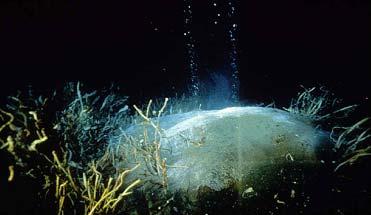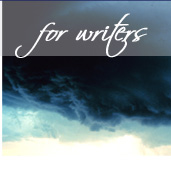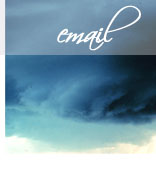


Forge Books ~ June 2009
all website content © Marianna Jameson ~ all website design © Paula Roe
reprinting any part of this website without prior permission is strictly prohibited.

4:30 A.M., Saturday, October 25, Miami, Florida
Dennis Cavendish became aware that he was drifting toward consciousness and then forced himself to open his eyes, demanded his brain kick into high gear. Too much was going to happen today for him to allow himself the luxury of a slow awakening. He pulled himself to a sitting position, then went to the shower to brace himself for the day ahead.
Forty-five minutes later Dennis was airborne, the engines of his Lear jet screaming as his pilot executed a steep takeoff from Miami International Airport. He would be on the ground on his island, Taino, in twenty minutes. Not long after that he would be in a small submarine headed four thousand feet to the bottom of his slice of the Caribbean. It wouldn't be a joy ride; it would be the last trip to see the dream of his lifetime while it still belonged just to him: Atlantis, the first fully staffed habitat ever built at that depth -- and the operations center for the newest and best means of changing the way the world worked.
In a few hours, Atlantis would begin to retrieve methane hydrate crystals from beneath the seafloor and introduce the world to the next, arguably the only, clean fuel that the planet had to offer.
From entertaining the first glimmer of a thought to watching the last beams being sunk into place, Dennis had known that this was what life was about. This was the brass ring, the golden goose; Attaining this kind of power was what every hackneyed cliché referred to, what every fairytale was about, what every emperor and despot had ever strived for -- the power to make the world change at one person's command. He was that person. Atlantis was his dream come to life.
And he, Dennis Cavendish, would change the world.
He picked up his phone and punched a single number. Less than a minute later, he heard a sleepy female voice, the voice of Victoria Clark, his secretary of national security and chief paranoiac. The woman whose job it was to keep him safe and happy.
"Hi Dennis."
"Hi Vic. I'm on my way to the island. Meet me at my office in half an hour."
"Is something wrong? Is everyone with you?"
The thought of dragging the senior executives of some of the world's major corporations out of bed and on to a plane before dawn made him smile. "No, I'm alone. I want to get the day going. It's going to be unforgettable, Vic. Let's get 'em, tiger. See you in thirty."
"Wait. Don't hang up."
Dennis could tell by the soft noises in the background that she was pushing herself to sitting position, getting focused. It rarely took Vic this long to focus on anything, but then, he didn't usually get her up in the middle of the night.
Vic was his workhorse, his closest confidante and the person who knew more of his secrets than anyone. She was the person he trusted the most -- at least that's what he told people. The reality was that Dennis trusted no one but himself.
He had to let people into his circle, but he knew the closer he let them get, the more they had on him, the more he was worth to them. The market price of betrayal was something that never lost value, and Vic was the one person who could command the highest fee for betraying him.
Betrayal was a lesson he'd learned the hard way and, as such lessons do, it had altered his thinking in an instant. Since the first time Dennis had been stabbed in the back by someone he trusted, the degree of closeness and his level of real trust in a person had moved along opposing axes. As one went up, the other went down. Treating betrayal as a "when" rather than an "if" made life much easier.
It was his only gospel, and it worked.
"Dennis, you need to fly with your guests. You need to be there with them-"
"I've been with them for two days non-stop. I'll see them when they get here in a few hours. Look, I want to go down to the habitat when I get there, okay? With you."
"I-"
"Not interested in all the many reasons you can't or won't go down there, Vic," he interrupted. "You're going."
Dennis disconnected before she could reply and sat back to sip his coffee.
In less than twenty-four hours, the world would be a different place. Vic was one of the few people who knew just how different it would be and she was going to be at his side today. All day. Today of all days the risk was inordinately high.

- - - - - - - - - - - - - - - - - - - - - - - - - - - - - - - - - - - - - - - - - - - - - - - - - - - - - - - - - - - - - - - - - - - - - - - - - - - - - -

Writing thrillers has its fun moments - you get to blow things up, save the day, kill the bad guys, and make sure the good guy gets the girl. But writing has its weird moments, too, and Bill and I have had our share.
Our proposal for Category 7 included a synopsis, a few chapters, tons of research about massive hurricanes that had hit the Northeast, and some great predictions of what might happen when the next one hits. It was ready to go to editors the day Katrina decimated the Gulf Coast.
Suddenly, much of our storyline was making headlines. With all the devastation happening for real, we just couldn't send out the proposal. We sat on the book for a little while before submitting, and Category 7 was ultimately published in July 2007.
When Bill and I started brainstorming our second book, we wanted to step slightly away from weather manipulation, which we had written about in our first book, Category 7, and get into the really big stuff: climate manipulation. After all, climate change is sort of the new black, right?
Well, the global climate is a rather large mechanism composed of literally billions of moving, continuously changing parts. Manipulating it would be quite a feat for anyone -- and an irresistible challenge for a megalomaniac like the anti-hero, Dennis Cavendish, we had already begun to create.
The possibilities were endless, which is both a good thing and a bad thing for writers. It means there are a lot of directions we could go in, but it also means that there is a lot of research that would have to be done before we came up with the right plot device. We needed to find a truly huge, sudden trigger for irreversible climate change. Carbon dioxide wasn't enough. We needed something deadly but that everyone would instantly recognize. So I started reading. And reading. And reading. I read about mud volcanoes, underwater volcanoes, and the regular kind we hear about all the time. I read about oil spills, nuclear accidents, and chemical releases; Prince William Sound, Chernobyl, Three Mile Island, Bhopal. And I flirted with a lot of conspiracy theory websites that discussed events and phenomena ranging from the plausible -- for instance, the Bermuda Triangle mysteries -- to the truly off the wall.
In all that reading, I came across an off-hand mention of something called methane hydrate and was fascinated. Methane hydrate is a crystalline form of methane -- methane ice, if you will. It looks like those foam packing peanuts and burns cold; there are pictures and videos of it being held in a human hand while on fire.
Methane hydrate is present under the sea floor all over the world and there are billions of dollars being spent by energy companies and governments, including our own, to find a way to safely and economically mine it. Proponents call it the world's only "clean" fossil fuel because when it combusts, its only by-products are carbon dioxide and water. That means no smoke, no disastrous spills. Environmentalists are up in arms about it for the same reason: carbon dioxide is one of the greenhouse gasses causing the planet's climate to change.
I had an inkling there was something there and started thinking about what would happen if the methane hydrate was mined, but not burned. It is "ice" buried at very high pressures and very low temperatures; what would happen if it would melt instead of combust? The answer to that was that there would be a massive methane gas release-and methane is a much more dangerous greenhouse gas than carbon dioxide. Twenty times more dangerous, in fact, as it sits in the atmosphere for about eight years before converting to carbon dioxide.
Hello Betty! We had our plot.
My brain went into overdrive. I had to start researching in earnest. Dinosaur extinctions. Atmospheric chemical changes and anaerobic microbial mutations. Underwater drilling and demolition. Caribbean seafloor topography. Small manned and unmanned submersibles. Underwater habitats. Eco-terrorism. Pressure differentials. Air currents. Aircraft explosions. Even what kind of weaponry is carried by Navy SEALs when they're on the water. I even pulled in bits of chaos theory, which has fascinated me since I was in college and took some courses on meteorology and planetary atmospheres. (I had the distinct good fortune, though I didn't know it at the time, to have a professor who was one of the leading researchers in the field of applying chaos theory to climate and weather systems.)
Our story came together in a big rush of creativity and the result is now in print (and hopefully on your bookshelf!). I hope you enjoy Frozen Fire. We certainly enjoyed creating it.
One additional, interesting note: After Frozen Fire was written, edited, and in production, our editor sent us news articles about scientists who had discovered undersea methane "chimneys" off Siberia; the chimneys were releasing methane into the atmosphere just as we described it in Frozen Fire. But we hadn't come across those articles during our research -- we thought we were making it all up! Then, this February (2009), The Los Angeles Times ran an article about Katey Walter, a University of Alaska researcher who discovered methane plumes rising from the surface of Arctic lakes. Videos show methane bubbling through water and Walter lighting the plumes on fire, similar to a scene in Frozen Fire.
So Bill and I have once again written a book that we thought - frankly, hoped - would be frightening fiction and seen it become reality. Given this track record, if writing didn’t hold the lure and promise of many more odd moments, we might both give it up and become bookies. But we won’t. And you will just have to wait and see what we have planned for you - and the world - next year.
Please feel free to contact me with questions or comments. In the meantime, here are some articles and websites that you might find interesting:
- Methane Bubbles Causing Climate Trouble (BBC article) - The BBC has a lot of great articles on climate and atmosphere in its archives. The site is well worth a few minutes of time spent poking around if you're interested in climate news.
- Spencer Weart's Discovery of Global Warming website at the Center for History of Physics at the American Institute of Physics - This very informative site is supported in part by the American Institute of Physics, the National Science Foundation, and the Alfred P. Sloan Foundation. I found it interesting and comprehensive.
- The Science of Abrupt Climate Change by Dr. Jeffery M. Masters on The Weather Underground website - This site has a lot of excellent background material regarding things like the Greenland Ice Sheet and global water currents (thermohaline convection cycle) that keep the planet's climate predictable on a day-to-day, month-to-month basis.
- Transcript of an interview with Professor Michael Benton of the University of Bristol (UK), about the pre-historical extinctions and what caused them - The documentary is called The Day The Earth Nearly Died.
- The web site of the Oak Ridge National Laboratory has a brief information page on methane hydrate.
- Guardian (UK) article about scientists who had discovered undersea methane "chimneys" off Siberia.
- Los Angeles Times article on University of Alaska researcher Katey Walter, who discovered methane plumes rising from the surface of Arctic lakes. Also, see the video here.
A seafloor mound of methane hydrate in which the methane is dissolving and rising.
Credit: US Geological Survey.







